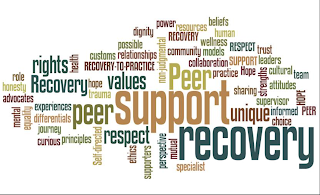...
Note: I am available for consultation work, curriculum development, trainings, etc.. I enjoy partnering with organizations on development of more accurate understandings of the realities of human social systems.
I can be reached by email at taylor.geomatics@gmail.com
Please consider donating to support this work. I am disabled, financially struggling, and am forced by existing social structures into producing content like this for free. I hope decision-makers will eventually shift priorities toward increased support for lived experience content generation and expertise sharing.
Donations are never required and always appreciated. Donate Link: https://ko-fi.com/socialrealitylab
...
The following is a note I sent to managers of an Oregon state-managed grant funding opportunity looking to support what's sometimes called the peer workforce. These are lived experience individuals who don't have direct degrees or licenses* for the services they're providing. Their credential is their own life experience and it is that which establishes them as a worthy expert. Often on this blog we refer to such individuals as being Experts by Experience (EBE).
*Increasingly, U.S. states are attempting to create certification programs for peer workers, and opinions on whether this helps or hampers the peer workforce is mixed with many valid points in opposition to the practice. Names for these roles have included Peer Support Specialist (PSS) and Peer Wellness Specialist (PWS). In Oregon, obtaining such a license requires completion of either a 40-hour or 80-hour training course.
In the note below, I express concern over whether the grants funds will be awarded to the full peer workforce, or just to the subset labeled "peer support specialists". These roles are often low-level, low-paying, and at the bottom of hierarchal power structures. For background reading on the history of the Peer Support Specialist role, I recommend this article by Darby Penney and Peter Stastny...
Article Link: Peer Specialists in the Mental Health Workforce: A Critical Reassessment
Note to State Funding Managers - Ensuring Inclusivity on What a "Peer Worker" Means
The sector of the peer workforce whom I train, collaborate with, work alongside, and myself am a member of includes staffers and unpaid individuals with work roles/duties including...
Broad View of Peer Workforce
- Leading workshops / trainings
- Developing the content of workshops / trainings
- Peer developed support material resources (example - this peer-developed crisis / suicide hotline caller guide)
- All manner of advocacy efforts (including lobbying for the funds that supports opportunities like this grant itself)
- Journalism
- The Arts (theater, authors, musicians)
- All manner of activism efforts, like the 15+ year effort to ban electroshock devices in autism/IDD care
- Peer consulting on research projects like this project from the UK
- Program administration and program management
I am concerned that, when considering grant applications, the review team might be biased towards thinking of "peer worker" in the more commonly employed roles doing...
Narrow View of Peer Workforce
- Help with direct health resource navigation
- Help with secondary "pass to other service" resource finding
- Various forms of one-on-one and group peer support sessions
- Clerical and office administration "front-desk" type roles
I would anecdotally guess (I don't have a direct report but have met and talked with dozens of workers in such roles) that 95% or more of peer-certified specialists in this state perform that second set of roles. I'm very concerned that the grant reviewer team might think that none of the work roles from the Broad List discussed above counts as a "peer support" or "peer worker" role. That worry carries additional weight considering that, if you do a web search for "Oregon peer support job", virtually every listed position you'll find will exclusively be performing work in that second list. It creates a situation where the Narrow List, and only that Narrow List, is what becomes synonymous with the term "peer worker".
Would welcome a conversation with stakeholders on how to equitably address this concern as part of the grant review instruction process, and can report that I am in active conversation with the Oregon state team managing the grant about these concerns.
...


